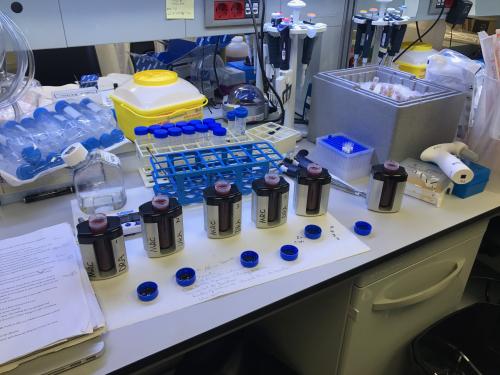
Life may be dominated by COVID-19, but we are still pleased to see that our protocol for utilizing human peripheral blood neutrophils for research into the Parkinson’s disease associated LRRK2 kinase has been published. Activating mutations in the LRRK2 kinase cause 1-4% of all Parkinson’s disease syndromes worldwide and new targeted therapies such LRRK2 kinase inhibitors aiming at disease modification rather than symptom control are currently being investigated in clinical trials. We had previously reported that endogenous LRRK2 kinase pathway activity could be measured by monitoring the phosphorylation of its endogenous substrate Rab10 and that human peripheral blood neutrophils are a suitable biomatrix for doing so. Neutrophils are a homogenous and highly abundant population of white blood cells that express high levels of both LRRK2 as well as Rab10 making them ideal for measuring LRRK2 dependent Rab10 phosphorylation that mirrors LRRK2 kinase activity. This has created a lot of interest in the Parkinson’s community with centres across Europe and the US starting to include neutrophils into their Parkinson’s biorepository collections, which led to the production of “The MJFF Dundee Neutrophil Protocol”. This was a collaborative effort by researchers from the MRC PPU, Ying Fan and Francesca Tonelli from Dario Alessi’s lab and Esther Sammler, colleagues from the Michael J Fox Foundation for Parkinson’s Research (MJFF), the Division of Cell Signalling and Immunology in Dundee, and the Universities of Indiana and Toronto.
Link to publication: https://www.jove.com/video/58956/human-peripheral-blood-neutrophil-isolation-for-interrogating
This work was funded by The Michael J Fox Foundation for Parkinson’s Research, and Parkinson’s UK. Esther Sammler is supported by a Scottish Senior Clinical Fellowship.

